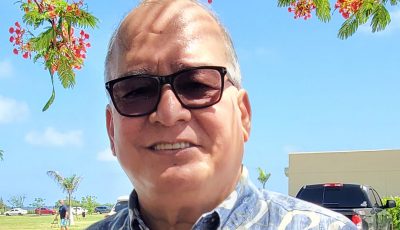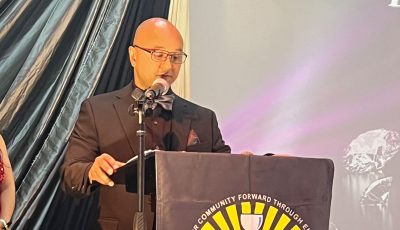GAO says some CW workers would benefit from HR 560
The U.S. Government and Accountability Office reports some foreign nationals may also qualify to gain CNMI resident status under the proposed H.R. 560, which is actually intended to help those who are under the CNMI categorical parole program that was discontinued by U.S. Citizenship and Immigration Services last December.
In his testimony before the House Natural Resources Committee hearing last week, GAO International Affairs and Trade director Dr. David Gootnick said that foreign nationals that were working using a CNMI-Only Transitional Worker permit since 2015 could also qualify to earn CNMI resident status if H.R. 560 is signed into law on or before June 30.
H.R. 560 is being proposed as a legislative fix for those who would lose immigration status by June 30 this year due to USCIS’ decision to discontinue the CNMI categorical parole program. That includes spouses and immediate relatives of citizens of Freely Associated States and spouses or IRs of U.S. citizens, parents of U.S. citizen children who are either under or over 21 years old, CNMI permanent residents, and stateless individuals.
Delegate Gregorio Kilili C. Sablan (Ind-MP), who presided over the committee hearing as vice chairman for Insular Affairs, introduced H.R. 560 to give legal resident status to those who will be affected by the USCIS decision.
Gov. Ralph DLG Torres, Guam Gov. Lou Leon Guerrero, Department of the Interior-Office of Insular Affairs director Nikolao Pula, and former CNMI public auditor Michael S. Sablan also provided testimony on Kilili Sablan’s H.R. 560.
Michael Sablan testified on behalf of Triple J Enterprises, not on behalf of Northern Marianas Business Alliance Corp. as earlier reported.
Triple J Enterprises is one of the members of the NMBAC business group where Sablan is the Finance and Administration vice president. Alex Sablan is the NMBAC president.
Kilili Sablan said H.R. 560 would reverse USCIS’ decision and give CNMI permanent resident status to affected individuals, along with some long-term workers and investors. “I want to make clear that, as with my previous bill on this subject, H.R. 560 only covers people who were lawfully admitted to the Marianas and who have remained lawfully present throughout their time of residence: No amnesty.”
“H.R. 560 provides no new eligibility for public benefits and adds no new societal costs. Instead, by stabilizing the population and the workforce, H.R. 560 will have a positive economic effect.”
Jenniffer González Colón, Puerto Rico’s resident commissioner to the U.S. House of Representatives and a ranking GOP member in the Insular Affairs Committee, said the hearing gives the territories a voice. “There are more than 3.5 million strong U.S. citizens from territories. We are not just an afterthought but also an important matter for the U.S. so that we are properly heard when crafting federal policies or legislation.”
Gootnick said H.R. 560 would give CNMI residency status to CW-1 workers that were continuously employed from 2015 to 2018. “Under H.R. 560, foreign nationals who meet additional eligibility requirements could be eligible to receive CNMI resident status if they were admitted annually to the CNMI as a CW-1 worker in fiscal years 2015 through 2018.”
“GAO’s preliminary analysis of [U.S. Department of Homeland Security] data found that 2,875 (about 32 percent) of 8,995 workers with CW-1 permits for fiscal year 2018 had maintained continuous employment each fiscal year since 2015 and would be eligible to seek residency status under H.R. 560, if other conditions of H.R. 560 were met.”
He added that GAO also recorded last year that over 80 percent of long-term workers in the CNMI were from the Philippines.
H.R. 560 would also establish CNMI resident status for CNMI permanent residents at the start of the transition period of the Consolidated Natural Resources Act of 2008, IRs of U.S. citizens at the start of the CW-1 program, the group of stateless individuals, and in-home caregivers.
The GAO report said that, based on their collected data, there are 1,039 individuals in one of the terminated categories who were living in the CNMI at the end of 2018. “The vast majority of these individuals are IRs or U.S. citizens.”
“USCIS data also showed that 90 percent of paroled were parents or spouses of U.S. citizens. Under H.R. 560, some of these individuals may be able to apply for CNMI permanent resident status.”



























